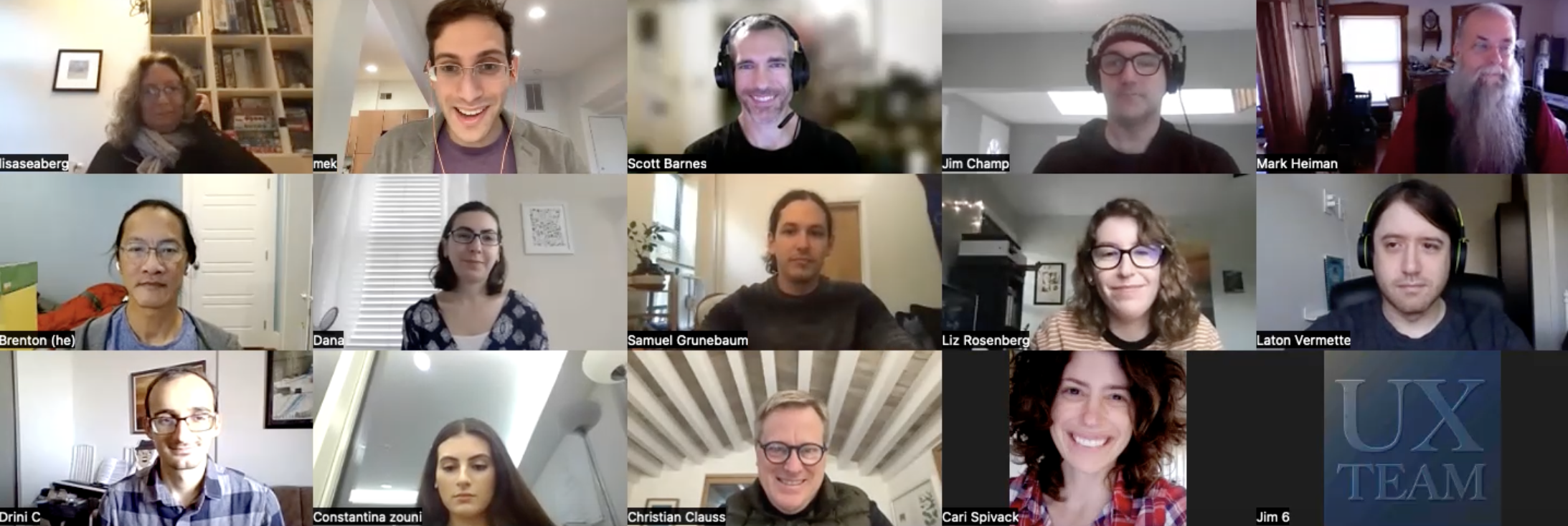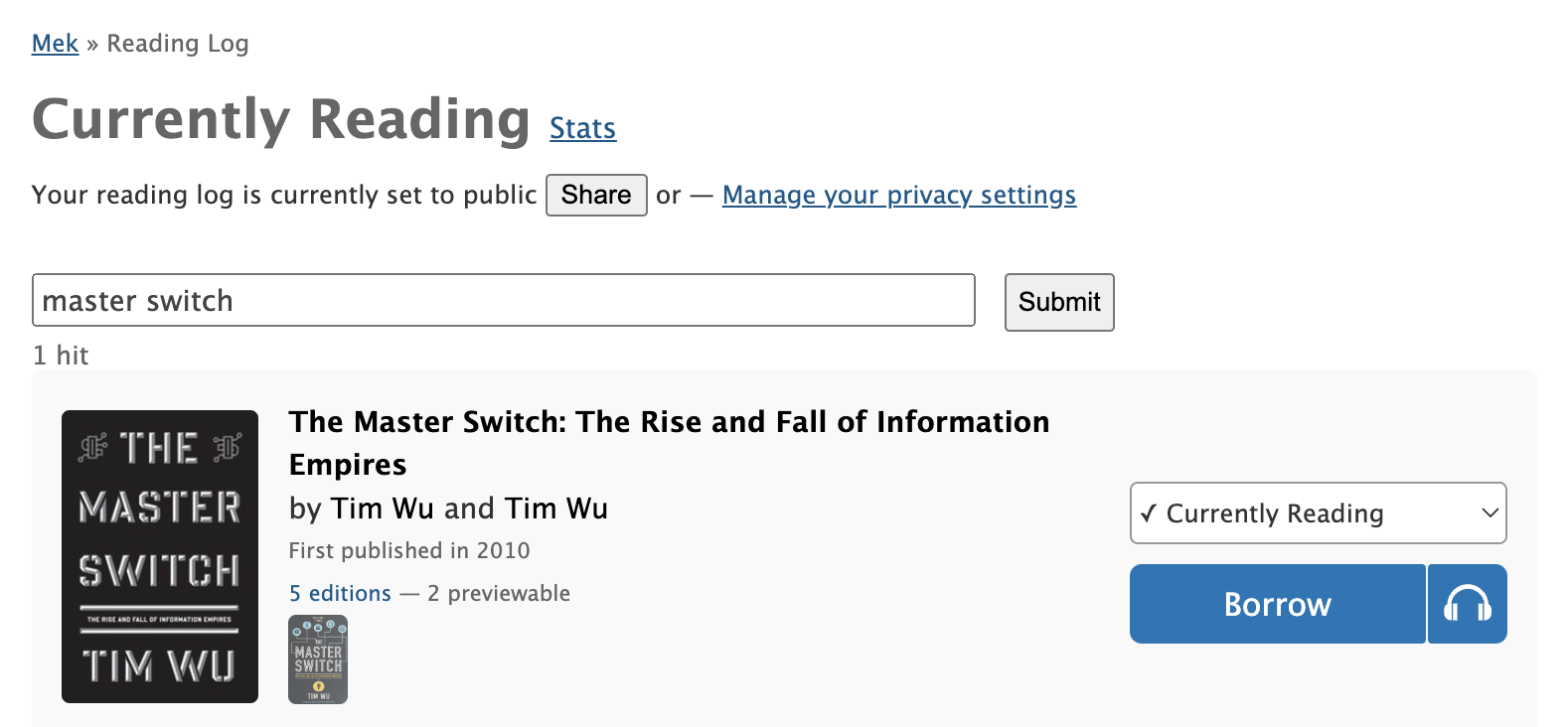
It seems like just the other day when the Open Library welcomed its 2 millionth registered patron in 2018. This year, we zoomed past 6M registered book lovers who collectively in 2022 have borrowed 4.3M books and counting, and who have added more than 4.7M books to their reading logs. Our book catalog expanded to nearly 38M editions and we cleaned up nearly 230k low quality records.
Together, our team released a flurry of features and improvements to the Open Library service including:
- Google Signup
- Account Anonymization & Data Exports
- Unified Search Page Navigation
- Improvements to Main Site Navigation
- Trending Books Feeds
- Book barcode scanner improvements
- Librarian Merge Queue (and 28k+ merged books)
- Book List social previews
Imminently coming is a game changing smart edition-search upgrade, a Yearly Reading Goals feature, support for Web Books, a significantly more usable 1-stop “My Books” page, and design improvements to the Books Page.
Want to see a full run-down of what we accomplished together?
Check out our 2022 Open Library Community Celebration video!
Important Documents
If you’ve ever wanted to dig down deeper into the Open Library’s transparent processes:
- Here is a comprehensive executive index — all the Open Library’s most important yearly docs
- Here is an index of key projects
- Here are our evolving community plans for 2023
- Here was our community roadmap for 2022
- Here was our recent 5-year vision planning session
Previous Community Celebrations
For the past 3 years around October, the Open Library has recognized its contributors by hosting an Open Library Community Celebration.
Historical Yearly Highlights
In addition to the yearly community celebration, we’ve tried to make end-of-year review posts to give the community transparency into our victories, changes, and planning. In:
- In 2016 there was the Open Library Reboot
- In 2017 we introduced the Reading Log feature
- In 2018 we had a Year of Victories
- In 2019 we announced the Scan on Demand program
- In 2020 we did our first Community Celebration & launched the Library Explorer
- In 2021 we did a comprehensive Year-End Review which we’re following this year 😊
Gratitude. Central to these achievements were my fellow staff on the Open Library’s engineering team: Drini Cami, Jim Champ, & Chris Clauss. Equally indispensable to this year’s achievements was Lisa Seaberg from Internet Archive’s Patron Services team. Lisa is both a voice and champion for our patrons as well as the Open Library’s Lead Community Librarian who helps facilitate our community of 500 librarian contributors and our Super Librarians (Daniel, Travis, Onno, et al) who work tirelessly together to keep our library catalog organized. Charles Horn from the openlibraries.online team has been instrumental in keeping MARC records flowing into the catalog and Cari Spivack on policy support. And this year 6 Open Library Fellows — Hayoon Choi, Sam Grunebaum, Dana Fein-Schaffer, Scott Barnes, Constantina Zouni, and Teo Cheng — who selflessly committed several months of their time to improve the Open Library platform for the world, alongside a team of more than 30 volunteer developers from around the globe. Thank you, of course, to Brewster Kahle and all of our patrons and generous donors for believing in us and keeping us funded for another year. And a special thank you to a sorely missed Aaron Swartz, without whom none of this would be possible.
Happy Thanksgiving!
– The Open Library Community

